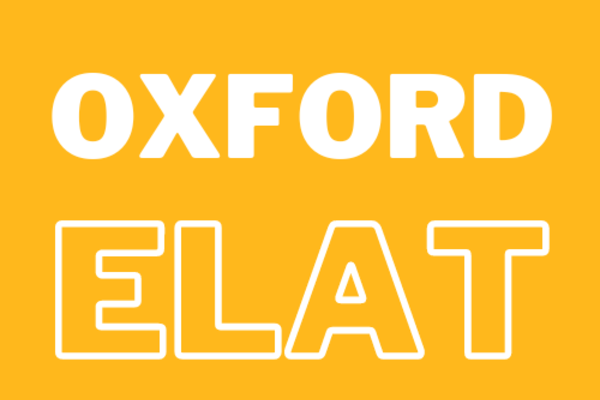How to apply
At Oxford, we look for students who consider the prospect of reading a hundred books a year a pleasurable challenge. You will have to read a great deal while you are here! You need to be able to work independently, as well as to respond to the guidance given by tutors. You must be prepared to work hard, and you should enjoy writing, and want to develop your skills as a critic – you will have to produce a substantial amount of written work every term.
Covid 19 and Admissions
The impact of Covid 19, months of lockdown and school closures have inevitably interrupted and disrupted studies, bringing unprecedented challenges for the current generation of school students. You may well feel more anxious about achieving the required grades in your exams, and less confident about your ability to make a successful application to Oxford. Do remember, however, that admitting tutors will take every applicant’s circumstances into account. Above all, the Oxford admissions process assesses each applicant’s essential skills and their potential, not just their exam grades. We’re looking for where we think you can get to in three- or four-years’ time, not just where you are when you apply. Please don’t let the disruptions of the pandemic dissuade you from applying.
Oxford ELAT 2024
Please note that candidates applying in October 2024 to study English will not need to sit the Oxford ELAT. Read a statement on the admissions test here: https://english.web.ox.ac.uk/about-oxford-english-literature-admissions-test-elat
When it comes to assessing applications, we are looking for evidence of wide, varied, and enthusiastic reading; we are not expecting applicants to have read everything, and have no prescription for any particular texts they 'should' have read. It is good preparation for any degree in English to read things from a variety of historical periods, and to read drama, poetry, and prose; there is nothing wrong with using historical anthologies of literature to gain a taste of what is out there, and then to pursue your own interests.
There is no ‘standard’ Oxford student. Every year we admit nearly 300 students from a wide variety of backgrounds, with an even wider variety of interests.
You apply through UCAS, as for any other university. The full information is contained in the University's Undergraduate Prospectus. The prospectus also contains information about different colleges; all colleges publish their own prospectuses too, which are either available direct from the college or from the University website.
To become a student at Oxford you need to be accepted by a particular college, though you apply through a central admissions system. If you don't know which college to name as your preference you can make an open application: details of this are also in the undergraduate prospectus. Offers of places are made at each college on the basis of your school or college record, samples of your work on English literature (or language and literature), an interview, and your past or future results in A levels (or whatever other exams you may be taking); more flexible criteria operate for mature students. Please note that for admission applications in 2024, you will not need to do the Oxford ELAT.
Candidates are shortlisted for interview on the basis of their academic record and promise, as detailed in our selection criteria. Interviews take place in December. You may be interviewed in the course of the same visit by more than one college; this helps to ensure that the best applicants get into Oxford regardless of the strength of the competition at different colleges. We continue to work to refine our selection procedures, and our updated criteria and processes should be consulted on the website before you make an application.
You can read English as a single subject at any of the undergraduate colleges.
Most students will have an A level in English Literature or in combined English Language and Literature. (Candidates offering English Language A level without English Literature are advised to contact their preferred college to discuss their situation before they apply.) The standard conditional offer is AAA.
In choosing which subjects to take to A level alongside English, students should think first of which subjects they most enjoy. A language or history can be helpful at A level, but in practice students come with a great variety of different A level subjects, and often find that science and social science subjects can be just as stimulating a combination with English. Many also come with other qualifications, including Scottish Highers or Advanced Highers (including English Literature or Language) and the International Baccalaureate (including English Literature). A general guide on post-16 subject choices is available at: https://www.informedchoices.ac.uk/.
Students applying for joint degrees will generally include in their A levels, or equivalent qualifications, the two subjects they wish to study, except in the case of the four-year course in Classics and English, where you will learn a classical language in your first year.
The English tutors and the Tutor for Admissions at every college are always happy to answer queries if you need more information. You should also consult the University Undergraduate Prospectus.
As a first step, all candidates are required to submit a UCAS form and one piece of recent written work. On the basis of evidence from the UCAS form and the written work, candidates will be placed in one of ten bands. Those placed in the bottom 40-50% of all applicants are unlikely to be called for interview, as we consider that an interview is unlikely to compensate for weaknesses elsewhere in the application. It is important to remember that shortlisting takes place in a highly competitive environment; virtually all candidates are predicted 'A' or 'A*' grades in all of their final examinations (or equivalent qualifications), so a strong academic record in itself does not guarantee an interview. Candidates called for interview will have an application which includes: an excellent or promising academic record; a strong reference; and good written work. Available contextual information on candidates is also taken into account at this stage.
Please note that candidates applying in October 2024 to study English will not need to sit the Oxford ELAT. Read a statement on the admissions test here: https://english.web.ox.ac.uk/about-oxford-english-literature-admissions-test-elat
Once shortlisting is complete, the Faculty will operate a procedure of reallocation between colleges, moving some candidates to colleges other than the one to which they originally applied. This is undertaken in full consultation with the tutors in each college, and is done in order to make the Admissions process as fair as possible, giving all candidates a balanced chance of gaining a place in the University as a whole.
The interview is the final stage of selection. It is Faculty policy for shortlisted candidates to receive at least two interviews; often these will be arranged to allow candidates to demonstrate different skills, such as close reading of an unseen passage, or extensive discussion of wider reading. Candidates may well be interviewed by more than one college during their stay in Oxford; as with pre-interview reallocation, this is to ensure that the best candidates gain places in the University regardless of the competition in particular colleges.
In conclusion, those responsible for Admissions will carefully examine all available information at every stage: qualifications achieved and predicted, school or college reports, personal statements, written work, and performance in interviews. They will also consult with their colleagues across the University, in order to ensure that competition is fair across all colleges. The aim of the whole is to establish each candidate’s potential for effective learning in a tutorial-based system, and for achieving good examination results in the Faculty of English.





